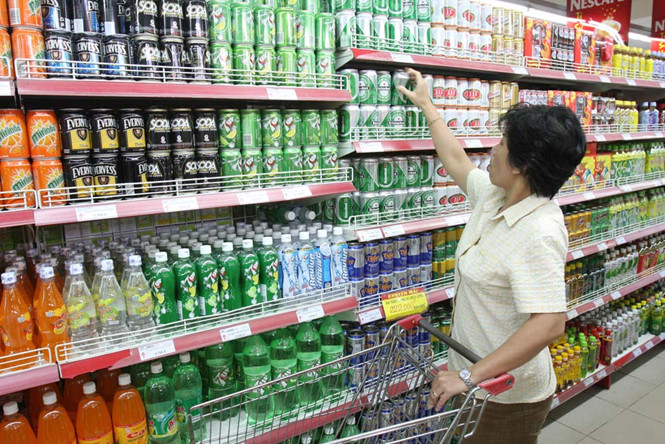VBA petitions against soft drinks tax
 |
| The debate over the proposed hefty special consumption tax on soft drinks continues |
According to VBA, MoF’s reason for applying the SCT on soft drinks is to combat obesity. It is a conclusion with lack of practical considerations because in reality the major factors causing obesity and diabetes are fast food and food containing a large volume of sugar. Thus, VBA is concerned whether the levy on soft drinks will actually contribute to decreasing obesity and diabetes rates.
Besides, VBA opposes the isolation of soft drinks for the addition of the SCT because there are numerous other food products containing a higher sugar volume than soft drinks, like cakes and candies.
According to the MoF proposal, soft drinks, including carbonated and non-carbonated soft drinks, energy drinks, instant tea, and coffee, would be subject to the SCT.
It is a general definition which does not differentiate between drinks containing added sugar or a mixture of added sugar and artificial sweeteners. In case the product contains sugar, MoF would have to propose different tax rates based on sugar content as it is directly related to health risks.
On the other side, MoF’s proposal would also impact the state budget and soft drink manufactures as well as the development plan for the beer, alcohol, and beverages sector to 2025 with the vision to 2035, according to the association.
Every year, soft drink manufacturers contribute approximately VND50 trillion ($2.2 billion) to the state budget and generate jobs for hundreds of thousands of people. The change of tax policy in general and the SCT in particular will have a negative impact on enterprises’ operation and revenue, which will translate to the state budget.
In the development plan for the beer, alcohol, and beverages sector to 2025 with vision to 2035, Vietnam set the target to produce 6.8 billion litres of soft drinks by 2020, which would increase to 9.1 billion litres by the 2020-2025 period and 15.2 billion litres by 2035.
In order to realise this target, the Ministry of Industry and Trade will stimulate large-scale investments in the beverage sector by using modern environmentally-friendly technology.
VBA is concerned about the feasibility of this target as the new draft tax policy might throw a wrench in previously calculated plans.
In case MoF refuses to withdraw its proposal, VBA requested to either apply an SCT of 1-3 per cent on all food products containing sugar or only add the SCT on non-carbonated soft drinks or soft drinks of a high sugar content that have yet to be subject to the SCT.
Besides, MoF should clarify the definition of soft drinks in the draft law in order to avoid misunderstandings, the association said.
What the stars mean:
★ Poor ★ ★ Promising ★★★ Good ★★★★ Very good ★★★★★ Exceptional
Latest News
More News
- Raised ties reaffirm strategic trust (February 20, 2026 | 14:06)
- Sustained growth can translate into income gains (February 19, 2026 | 18:55)
- The vision to maintain a stable monetary policy (February 19, 2026 | 08:50)
- Banking sector faces data governance hurdles in AI transition (February 19, 2026 | 08:00)
- AI leading to shift in banking roles (February 18, 2026 | 19:54)
- Digital banking enters season of transformation (February 16, 2026 | 09:00)
- IFC to grant $150 million loan package for VPBank (February 13, 2026 | 09:00)
- Nam A Bank forms position as strategic member at VIFC through three key partnerships (February 12, 2026 | 16:39)
- Banks bolster risk buffers to safeguard asset quality amid credit expansion (February 12, 2026 | 11:00)
- VNPAY and NAPAS deepen cooperation on digital payments (February 11, 2026 | 18:21)
















 Mobile Version
Mobile Version